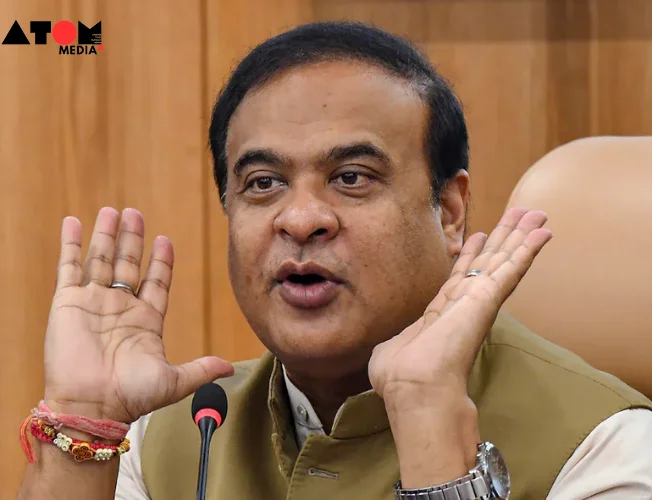Himanta Biswa Sarma, the chief minister of Assam, recently made contentious comments that alluded to a dramatic change in the political climate in the region. Sarma’s claim that the Assamese Congress party has become a “completely” Muslim-oriented party has generated discussion and prompted inquiries regarding changing voter trends. Let us examine Sarma’s remarks in more detail and the political ramifications they may have for Assam.
The Shift in Voter Patterns
Following the Lok Sabha elections, Sarma made the following observations: he saw a noticeable shift in voting habits, especially among Muslim voters. Sarma claims that the Congress party has succeeded in winning over Muslim votes in Assam, which is a change from its usual support base. As Sarma notes, this change in loyalty has made the Congress seem like a party that mainly serves the interests of Muslims in the state.
AIUDF’s Decline and Congress’s Gain
The fall in support for the All India United Democratic Front (AIUDF), a party historically recognised for winning the Muslim vote in Assam, is one of the main points made by Sarma. Sarma noted that the AIUDF was losing ground to the Congress party as Muslim voters appeared to be leaning in their direction. The political landscape of the state will be significantly impacted by this calculated realignment of party allegiances.
Electoral Dynamics and Speculations
Sarma emphasised the importance of Muslim votes in Assam, pointing out that they make up an estimated 40% of the state’s electorate. Sarma speculated about the future course of Muslim voter loyalty, expressing doubt about whether they would stick with the Congress party or switch back to the AIUDF for the 2026 Assembly elections.
Key Electoral Outcomes
Sarma drew attention to a number of election results that demonstrated Assam’s changing political landscape. He pointed out that the AIUDF had suffered in areas that were before thought to be its strongholds, such as Dhubri, Nagaon, and Silchar. Sarma also stated that the BJP’s electoral triumphs in the state were aided by its ability to secure Muslim votes in specific areas.
Analyzing the Overall Performance
Sarma examined the entire electoral outcome and pointed out that the vote percentage of the National Democratic Alliance (NDA) was higher than that of the INDIA group, which is led by Congress. He highlighted how the NDA had performed better in Assam than in previous elections, citing a discernible rise in both voter support and the number of seats won.
Challenges and Opportunities
Sarma expressed hope for the alliance’s success in some states, but admitting the difficulties the NDA has encountered in others. He cited the NDA’s electoral triumphs in states like Arunachal Pradesh, Tripura, and Sikkim as evidence of their tenacity and flexibility in the face of adversity.
The outcomes
Sarma’s comments provided insight into the changing political climate in Assam, which is marked by a realignment of strategy and a change in voter loyalties. The Congress party’s seeming consolidation of Muslim votes highlights the state’s dynamic electoral politics, which will have an impact on upcoming elections and political tactics. Political parties in Assam need to adapt to changing voter preferences and continue to be skillful in their approaches to representation and government.
Read more: Marketing News, Advertising News, PR and Finance News, Digital News





